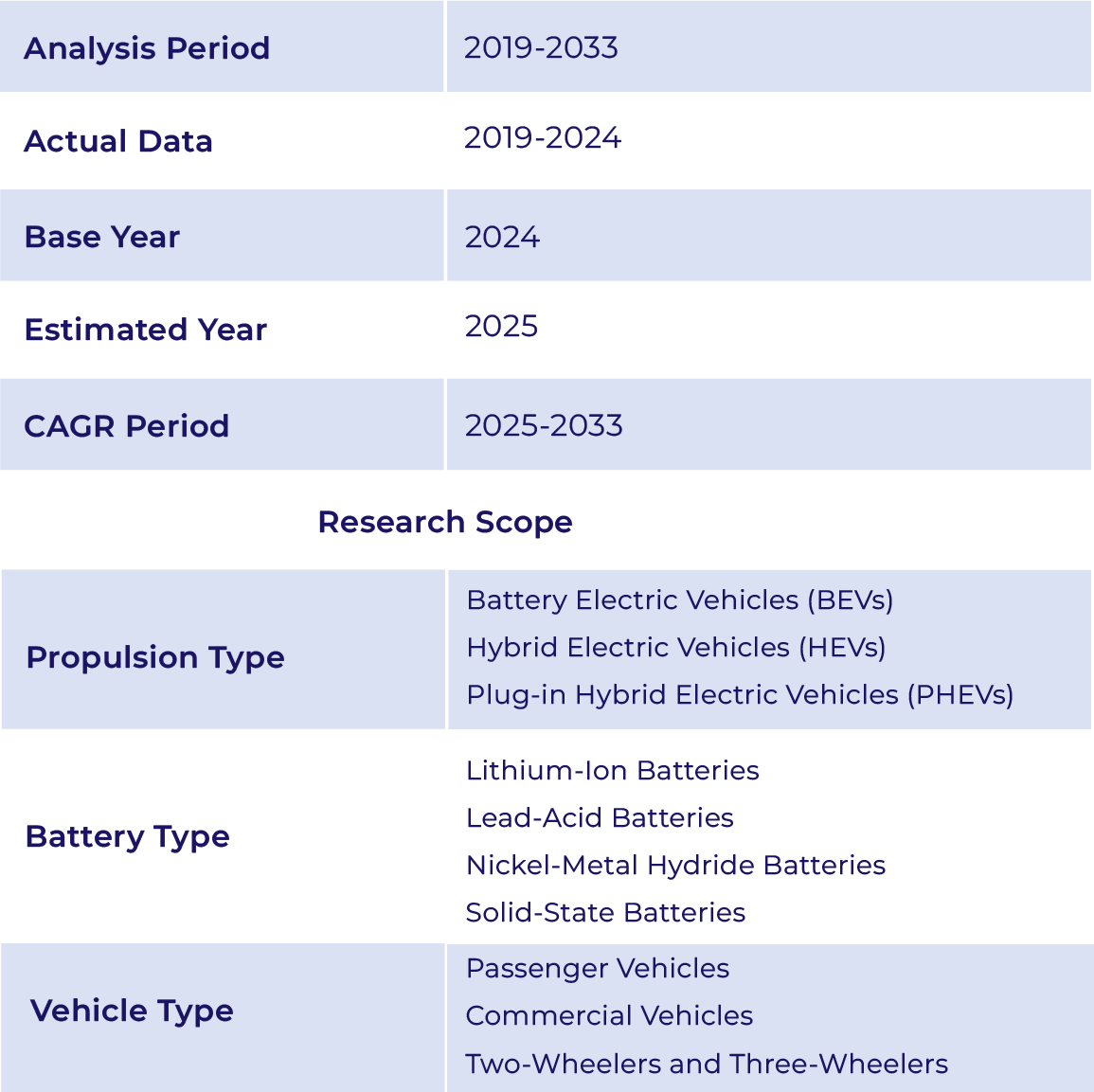South Korea Electric Vehicle Battery Market Growth and Performance
- Revenue in the South Africa EV battery market is estimated to reach US$ XX Million by 2032, with an expected Compound Annual Growth Rate (CAGR) of XX% from 2024 to 2032.
- In 2023, the market size of the electric vehicle battery industry in India was US$ XX Million.
South Korea Electric Vehicle Battery Market Outlook
EV battery market in South Korea is rapidly evolving, driven by technological innovation, strategic investments, and proactive regulatory measures. As a global leader in battery manufacturing, South Korea is addressing safety concerns, expanding international partnerships, and investing heavily in research and development to maintain its competitive edge in the EV sector.In response to a series of EV-related fires, the South Korean government expedited the implementation of a comprehensive battery certification scheme. Originally planned for a later date, the program was advanced to October 2024 to enhance public safety. The initiative mandates that automakers disclose the manufacturers of the batteries used in their vehicles, aiming to increase transparency and accountability within the industry. Additionally, the government is revising fire safety standards, including the installation of sprinkler systems in underground parking facilities equipped with EV charging stations, to mitigate potential risks associated with EV fires.
On the technological front, South Korean scientists have unveiled a groundbreaking battery innovation that promises to surpass existing EV charging technologies. This new development focuses on enhancing energy density and reducing charging times, potentially offering a more efficient alternative to current lithium-ion batteries. Such advancements are crucial for addressing consumer concerns about EV range and charging convenience, thereby accelerating the adoption of electric vehicles. Strategic international partnerships are also shaping the landscape of South Korea's EV battery industry. SK On, a prominent South Korean battery manufacturer, has secured a deal to supply batteries for Nissan's next-generation electric vehicles in the United States. The agreement, set to commence in 2028 and span six years, underscores South Korea's expanding influence in the global EV market and its commitment to supporting international automotive manufacturers in their transition to electric mobility.
However, not all international ventures have proceeded as planned. LG Energy Solution (LGES) recently withdrew from a significant EV battery production project in Indonesia, citing unfavorable market conditions and investment environments. The $8.45 billion initiative, known as the "Indonesia Grand Package," aimed to establish a comprehensive EV battery supply chain in the country. Despite this setback, LGES continues to collaborate with the Indonesian government through its joint venture with Hyundai Motor Group, HLI Green Power, which operates Indonesia's first EV battery cell production plant.
Domestically, the South Korean government has announced a substantial investment of $14 billion to revitalize the green vehicle and battery industries. This funding aims to bolster research and development, support the domestic production of EV components, and enhance the competitiveness of South Korean companies in the global market. The investment reflects the government's commitment to fostering sustainable transportation solutions and maintaining the country's leadership in EV battery technology.
South Korea Electric Vehicle Battery Market Scope







